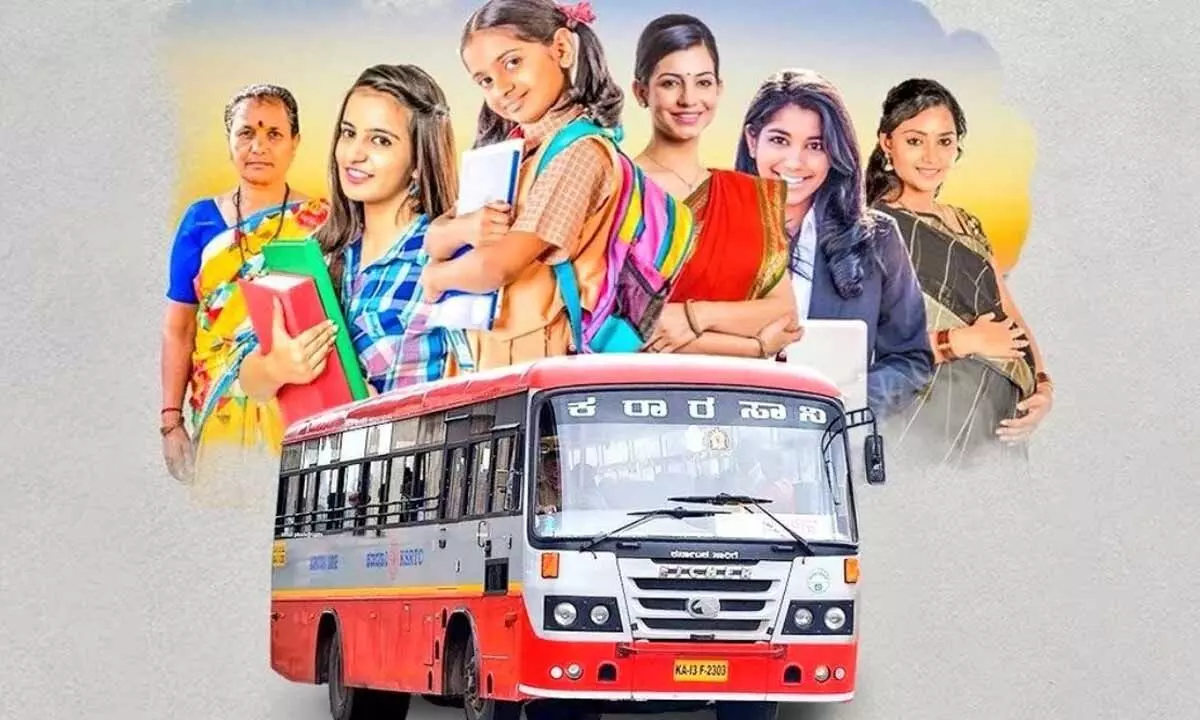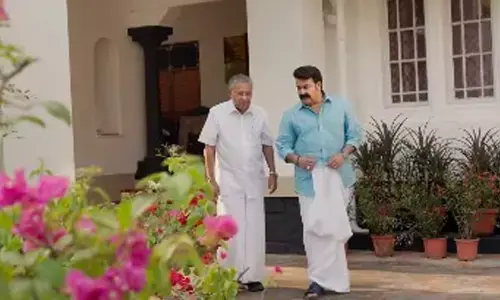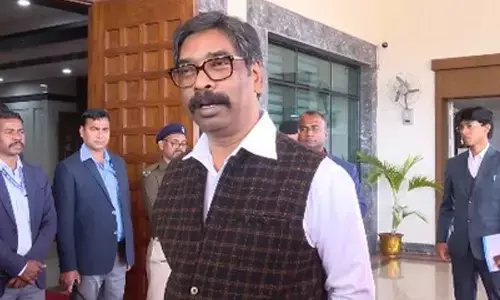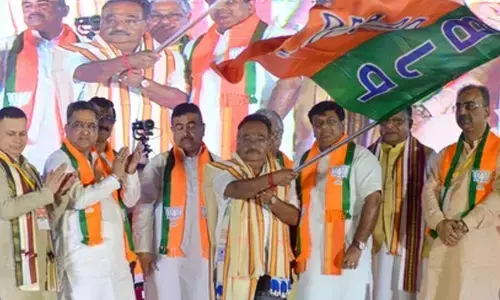Transport dept inflow to be dented by more than half

Transport dept inflow to be dented by more than half
Free bus travel facility for women, the most important of the government’s five guarantees, is estimated to result in a loss of 55 percent revenue to all transport corporations, leaving the remaining revenue insufficient even to pay for regular diesel. The challenge is how to afford it.
Bengaluru: Free bus travel facility for women, the most important of the government’s five guarantees, is estimated to result in a loss of 55 percent revenue to all transport corporations, leaving the remaining revenue insufficient even to pay for regular diesel. The challenge is how to afford it.
There are 22,000 to 23,000 buses in all the four corporations including KSRTC and BMTC and more than 82 lakh passengers are traveling daily. From this the daily income is approximately Rs 22 to Rs 24 crore. Now the income will drop by 50 percent due to the provision of free facilities to women passengers, half of the revenue generated to be spent. Accordingly, it will be Rs 12 to Rs 13 crore, which is the total amount of diesel bill paid by all the four corporations on a daily basis. It has to be paid regularly as per written rules.
The future of Corporations depends on how the government pays for lost revenue. If the government says that it will give an annual grant, then both salary and diesel payment will be difficult in the current situation. Then going for a loan will be inevitable. Corporations literally have to go through challenging days even though the grant is fulfilled every month.
Because, all the four corporations spend Rs 12 crore on diesel every day. It has to be paid as per rules. But now the payment is being made every 15 days. Since all the income will go to diesel, it will be necessary to cut down on any kind of expenses including the purchase of equipment that comes in between. This has now put the transport corporations to sleep. In the meantime, it is estimated that the financial burden of the proposed project is expected to be Rs 3,000 crore annually.
Should it be paid monthly or annually? Or should such grants be given in advance? Sources said that the Finance department has discussed with the officials of the transport corporations about many such aspects.
From the beginning, there has been an effort to make the transport corporations financially strong and self-sufficient instead of reaching out to the government for everything. However, it has not been possible so far. Earlier, a single member committee was formed under the leadership of retired IAS officer M R Srinivasamurthy. He said the government should curb unnecessary expenses along with several recommendations including proper utilisation of real estate of corporations, restructuring of routes and management of driver cum conductors.
He said that should not be depended on government grants. However, now the government’s dependence on the transport corporations will further increase. Every month the salary of employees in KSRTC itself to cost Rs 140 crores per month. Diesel payment will be Rs 140- Rs 150 crore. A KSRTC official, who did not want to be named, said that it will be necessary for the corporations to reach out to the government at every stage with the free bus facility for women.
It is said that there has been thought of imposing a condition of traveling up to 100 km per day for every woman. Volvo intends to provide this free facility in regular buses, except for premium services including sleeper, with a maximum limit of 100 km. Sources said that there was also a discussion regarding providing free transport service to women passengers of the state coming from interstates.
The government, which is thinking to go for technology as much as possible for free bus travel scheme for women, intends to introduce many advanced technologies including prepaid pass, face detection camera. Distribution of prepaid pass to women passengers in advance on the model of “Namma Metro”. There is a thought of introducing a system where money is deducted from the card every time the passenger travels. But, this card swiping technology is also required. There have been discussions about installing technology to calculate how many passengers have boarded and deboarded in each bus on a daily basis.




